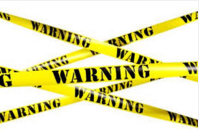If you’re a dentist dreaming of ownership, the fastest way to stall that dream might be buried in...
The One Clause That Could Wreck Your Dental Real Estate Lease—and Your Future
The One Clause That Could Wreck Your Dental Real Estate Lease—and Your Future
When you’re preparing to open your own dental practice, signing a dental real estate lease can feel like checking a box on your startup to-do list.
But there’s one clause buried deep in some leases that could completely undermine your future. And most dentists never even know it's there—until it's too late.
It’s called the Confession of Judgment clause, and in my opinion, it’s one of the most dangerous pieces of language you can agree to in commercial real estate.
Let’s unpack what it is, how it works, and why you should run the other way if you see it.
What Is a Confession of Judgment Clause?
In plain English: this clause says that if your landlord claims you violated the lease, you’re automatically guilty.
No hearing. No legal defense. No negotiation.
If this clause is in your lease and your landlord decides to exercise it, the judgment goes into effect—immediately. You could be forced out of the building and on the hook for the entire remainder of your lease. That’s not theoretical. It’s real. And it’s legal in some states.
Example:
If you’re paying $3,000/month with 20 months left on your lease, and the landlord activates this clause, you could owe $60,000 immediately—plus be required to vacate the premises.
Even if you didn’t actually violate anything.
Yes, it’s that lopsided.
Why Would a Landlord Include This?
Landlords aren’t villains. Most want tenants who succeed because successful tenants pay rent on time. But here’s the key: landlords also want leverage. And a Confession of Judgment clause gives them enormous leverage.
Imagine a scenario where the landlord is strapped for cash or needs to create a financial cushion quickly. They might look for a trigger to pull. And with this clause, they don’t need to win in court—because you already agreed to lose.
Scary, right?
How to Avoid This Costly Mistake in Your Lease
If you’re looking at a dental real estate lease (or will be soon), here’s what I recommend:
1. Know the Red Flags
Confession of Judgment language is often buried in dense legal sections. Look for wording like “tenant consents to the entry of judgment” or “waives the right to notice and hearing.”
2. Don’t Assume Your Attorney Catches It
Not all attorneys specialize in dental leases. You need an expert who understands dental-specific needs—and who knows the tricks some landlords (or their attorneys) use.
3. Get Help Before You Sign
I can’t emphasize this enough: the best time to protect your practice is before you sign the lease, not after.
Dental Real Estate Leases Are High Stakes
This isn’t about paranoia—it’s about preparation. You’re building a long-term asset, something that will support your family and serve your community for decades. The lease is the foundation.
A bad clause, like Confession of Judgment, could compromise everything you’ve built.
Let’s make sure you avoid that.
If you haven’t read Part 3 of this Dental Real Estate Lease series, now is a great time. You’ll learn how to win in your lease negotiations and protect your practice for the long haul. Read Part 3 here.
And remember—commercial leases aren’t written for dentists. But they can be rewritten with you in mind.
Be empowered. Be protected. And be sure you’re not signing away your future by accident.
—Stephen Trutter

.png?height=200&name=Ideal%20Practices%20Hubspot%20Blogs%20(44).png)
